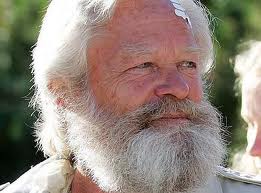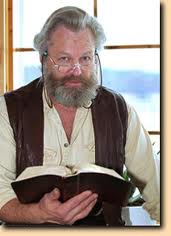
How should you save the Earth?
On Earth Day this past Sunday, I decided to do something good for the environment—-and for my family and myself. I took up a large big box retailer’s offer to trade in my rusting, ancient of days, gasoline-powered, emissions-spewing lawn mower for a discount off the price of an environmentally friendly classic 20” push reel mower. So it was “no” to creating weekly a small amount of greenhouse gases and “yes” to another anti-obesity habit, i.e. physical exercise.
Of course, in my neighbour’s eyes, this will just be another confirming proof of my eccentricity. They are certain I’m strange—but harmless. After all, I NEVER spray the lawn with toxic herbicides to get rid of those cheerful, well-established dandelions. And I actually go out and regularly commune with my dandelions in order to pick the leaves to steam up for dinner. I’m sure my neighbours have concluded that I’m fraternizing with the weed enemy. But besides doing a little to save the Earth by this small gesture, it also saves me from paying for a bunch of spinach at the supermarket.
My neighbours just don’t understand what they are missing out on. Being Earth friendly can even help you improve your teenagers work habits. Why my almost 15-year-old was so enthused by the novelty of my new push mower that he even volunteered to cut the grass all by himself. And after the job was finished, he began openly musing about starting up his own entreprenurial business selling a “green” lawn cutting service using my new mower. Ah, what unexpected dividends could arise as a green technology transforms a video game-playing, couch potato into a go-get-her Canadian eco-warrior with biceps.
Yet is such a non-violent, stand-up-for-the-Earth choice (apologies to the occasional slugs and bugs that get cut up) in how one exercises appropriate environmental stewardship a better one than that made by the confrontational, Canadian eco-warrior Wiebo Ludwig, who died this year on April 9? Some people call Ludwig an “eco-terrorist.”
Which is the better, more effective path in the long run: A peaceful approach? Or, a more confrontation, violent approach?
Ludwig honestly earned his “eco-terrorist” reputation by blowing up sour gas wells in northwest Alberta in the late 1990s. He was making a statement to the oil and gas industry and the regulatory governmental agencies that they couldn’t ignore. Of course, they didn’t. So Wiebo eventually ended up in jail. He paid a high personal price to open up the conversation about the steep price that is being paid by aquifers, rural families, and their livestock in order to make possible the wealth and power of Western Canada’s oil and gas companies. Oil and gas development is not a completely win-win proposition for all. 
But was Wiebo Ludwig right in the way he confronted the dark side to the oil and gas development of northern B.C. and Alberta?
Wiebo sincerely believed that the sour gas wells were causing his daughter’s miscarriages, as well as, the ill-health and even death of some of the livestock on his farm located near Hythe, Alberta. But because industry and government seemingly turned a deaf ear to Wiebo Ludwigs’s environmental complaints and even denied that there really was a problem to be resolved or mitigated, the man chose to act violently in response to his frustration. The legacy of Wiebo Ludwig is full of controversy and, in some quarters, opprobrium. Did he make the right choice?
Wiebo Ludwig was a complicated man. He had good qualities and bad ones, such as his capacity for anger. The Scriptures warn us about the danger of being an angry person:
And “don’t sin by letting anger control you.” Don’t let the sun go down while you are still angry, for anger gives a foothold to the devil (Ephesians 4:26-27 New Living Translation).
Wiebo also had a degree in Christian theology and was ordained as a minister for the Dutch Reformed Church. Consequently, he knew the Apostle Paul’s list of obligatory character requirements for the ministry:
An elder is a manager of God’s household, so he must live a blameless life. He must not be arrogant or quick-tempered; he must not be a heavy drinker, violent, or dishonest with money. Rather, he must enjoy having guests in his home, and he must love what is good. He must live wisely [sound-minded] and be just. He must live a devout and disciplined life [self-controlled]. He must have a strong belief in the trustworthy message he was taught; then he will be able to encourage others with wholesome teaching and show those who oppose it where they are wrong (Titus 1:7-9 New Living Translation).
The “sound-mindedness” that the Apostle Paul was requiring meant having an spiritual inner outlook that correctly balanced outward behaviour. While “self-controlled” meant that a minister must master himself from within. But the concluding point in this passage by Paul is that the servant of the Creator must use his talents and the situations that arise in life in the most productive means possible so as to change or persuade those who oppose “wholesome teaching.” One can’t accomplish this change with threats or force.
 Wilber Wilberforce struggled within the British parliament for over 30 years in order to extinguish human chattel slavery. By peaceful means he changed a great deal of the social policy of the 19th Century’s superpower, the British Empire. And Wilberforce did it with amazing grace, though for decades he faced seemingly insurmountable roadblocks and reversals.
Wilber Wilberforce struggled within the British parliament for over 30 years in order to extinguish human chattel slavery. By peaceful means he changed a great deal of the social policy of the 19th Century’s superpower, the British Empire. And Wilberforce did it with amazing grace, though for decades he faced seemingly insurmountable roadblocks and reversals.
The Apostle Paul in writing to Timothy, amplified the qualifications of a servant of God, including the importance of a good reputation with non-Church members:
Also, people outside the church must speak well of him so that he will not be disgraced and fall into the devil’s trap (1 Timothy 3:7 NLT).
Wiebo Ludwig failed in this regard—however accurate his environmental complaint.
In the 21st Century there will be an increasing amount of environmental pollution that will negatively impact areas as small as a single neighbourhood, or as large as an entire geographical region—remember the disaster in the Gulf of Mexico due to BP’s massive oil spill. Environmental disasters will continue to occur because far too many corporate CEOs in their pursuit of profits and bonuses do not practice the golden rule — loving one’s neighbour as oneself So there will always be plenty of work for environmental organizations who protest such abuse of the Earth.
However, for those who would make a profession of Christianity, we must live and act according to the Scriptures when dealing with those who are polluting the environment. Our methodology as individuals should set the right example. With peaceful, persistent persuasion, we must make the changes needed to preserve God’s Creation, this rare blue and green planet that sustains our existence in the midst of the blackness of inhospitable space.
The Christian profession precludes the possibility of any form of political or environmental confrontation that employs some form of violence that might injure others — that is not the Christian way. A good end can never justify a violent means. No matter how egregious the environmental sin, it remains the Creator’s sole personal prerogative—NOT ours—to punish or to exact retribution upon those who are unwittingly or knowingly destroying the Earth (see Revelation 11:18).

